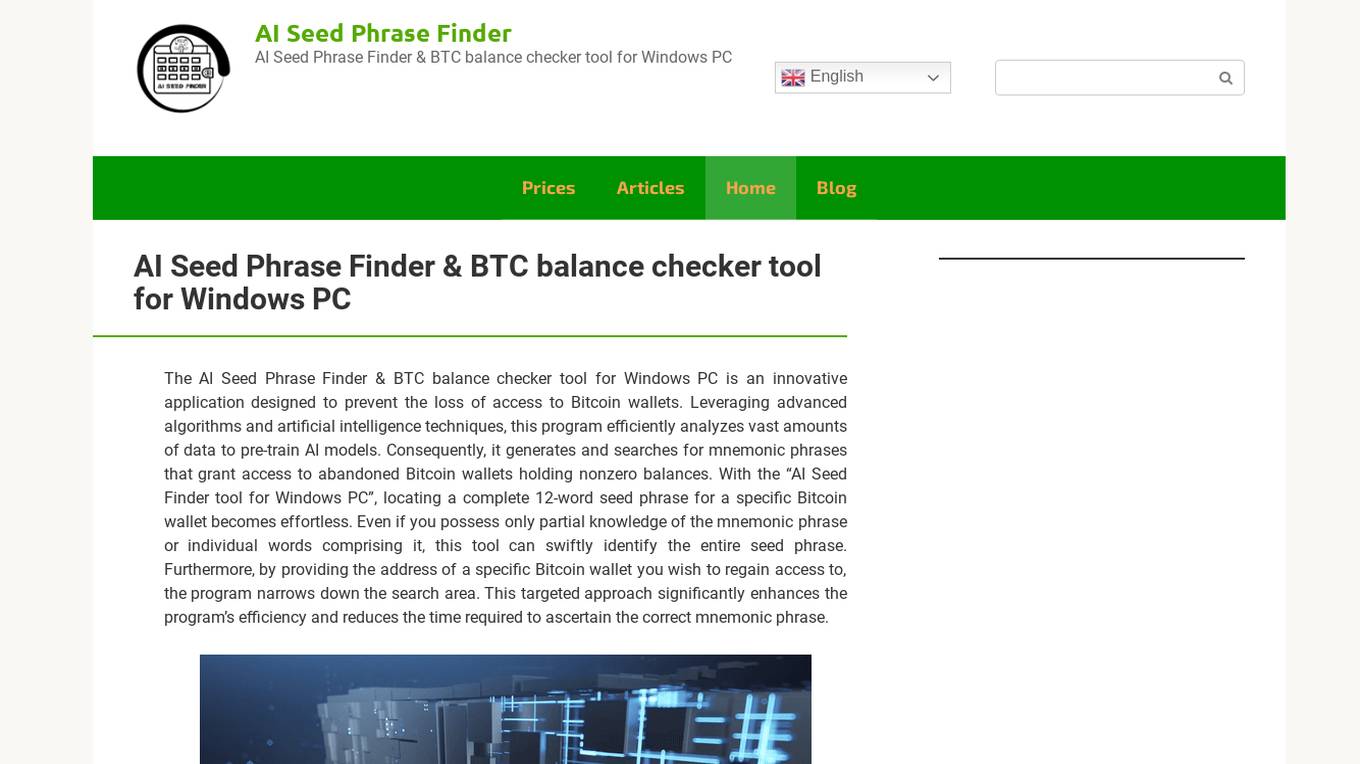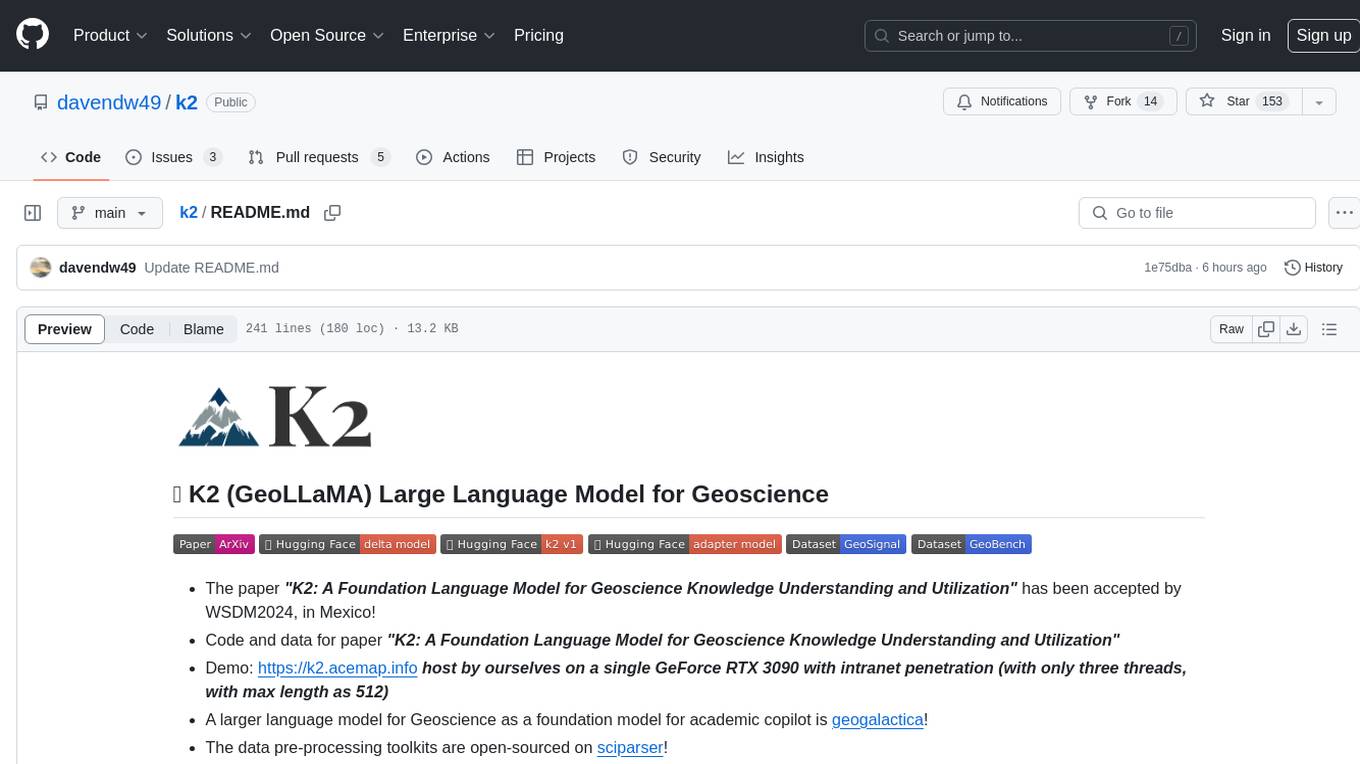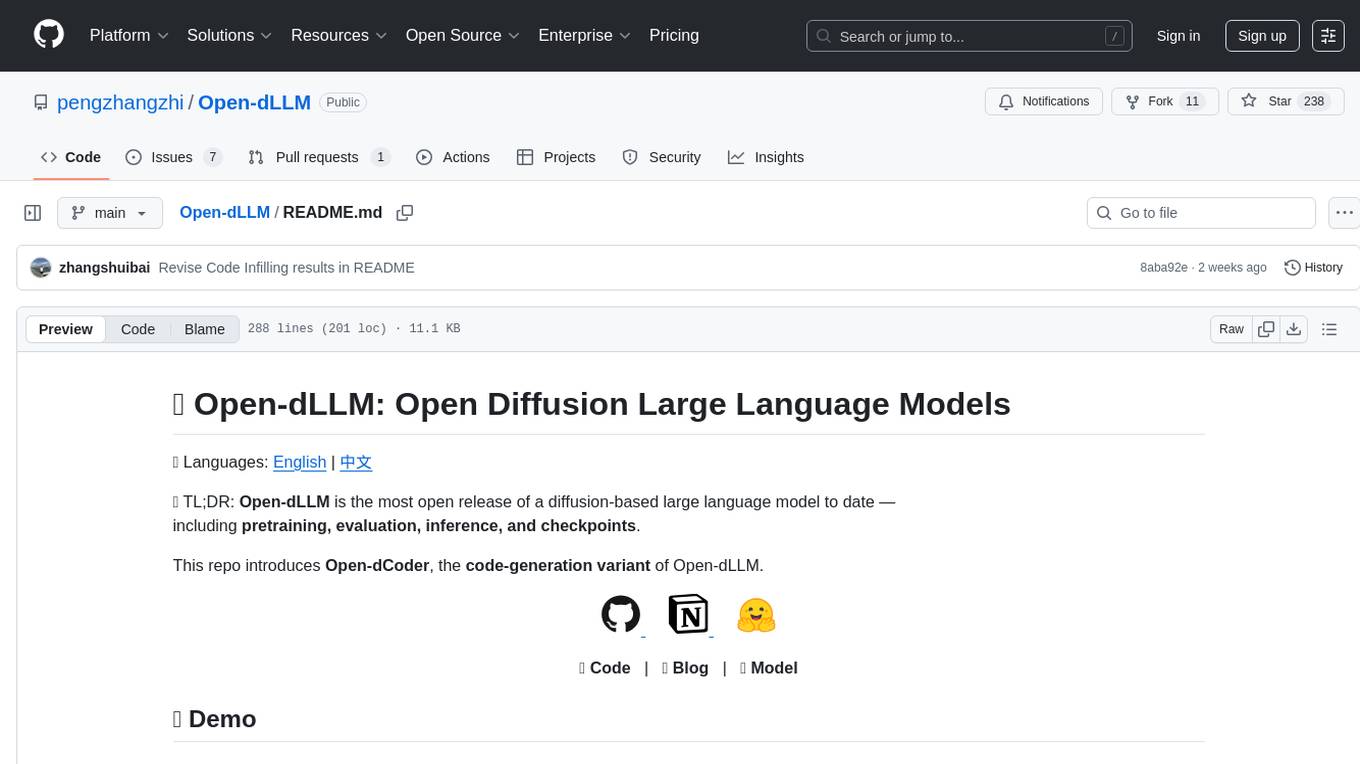Best AI tools for< Pretrain Language Models >
1 - AI tool Sites

AI Seed Phrase Finder & BTC balance checker tool for Windows PC
The AI Seed Phrase Finder & BTC balance checker tool for Windows PC is an innovative application designed to prevent the loss of access to Bitcoin wallets. Leveraging advanced algorithms and artificial intelligence techniques, this program efficiently analyzes vast amounts of data to pre-train AI models. Consequently, it generates and searches for mnemonic phrases that grant access to abandoned Bitcoin wallets holding nonzero balances. With the “AI Seed Finder tool for Windows PC”, locating a complete 12-word seed phrase for a specific Bitcoin wallet becomes effortless. Even if you possess only partial knowledge of the mnemonic phrase or individual words comprising it, this tool can swiftly identify the entire seed phrase. Furthermore, by providing the address of a specific Bitcoin wallet you wish to regain access to, the program narrows down the search area. This targeted approach significantly enhances the program’s efficiency and reduces the time required to ascertain the correct mnemonic phrase.
2 - Open Source AI Tools

k2
K2 (GeoLLaMA) is a large language model for geoscience, trained on geoscience literature and fine-tuned with knowledge-intensive instruction data. It outperforms baseline models on objective and subjective tasks. The repository provides K2 weights, core data of GeoSignal, GeoBench benchmark, and code for further pretraining and instruction tuning. The model is available on Hugging Face for use. The project aims to create larger and more powerful geoscience language models in the future.

Open-dLLM
Open-dLLM is the most open release of a diffusion-based large language model, providing pretraining, evaluation, inference, and checkpoints. It introduces Open-dCoder, the code-generation variant of Open-dLLM. The repo offers a complete stack for diffusion LLMs, enabling users to go from raw data to training, checkpoints, evaluation, and inference in one place. It includes pretraining pipeline with open datasets, inference scripts for easy sampling and generation, evaluation suite with various metrics, weights and checkpoints on Hugging Face, and transparent configs for full reproducibility.